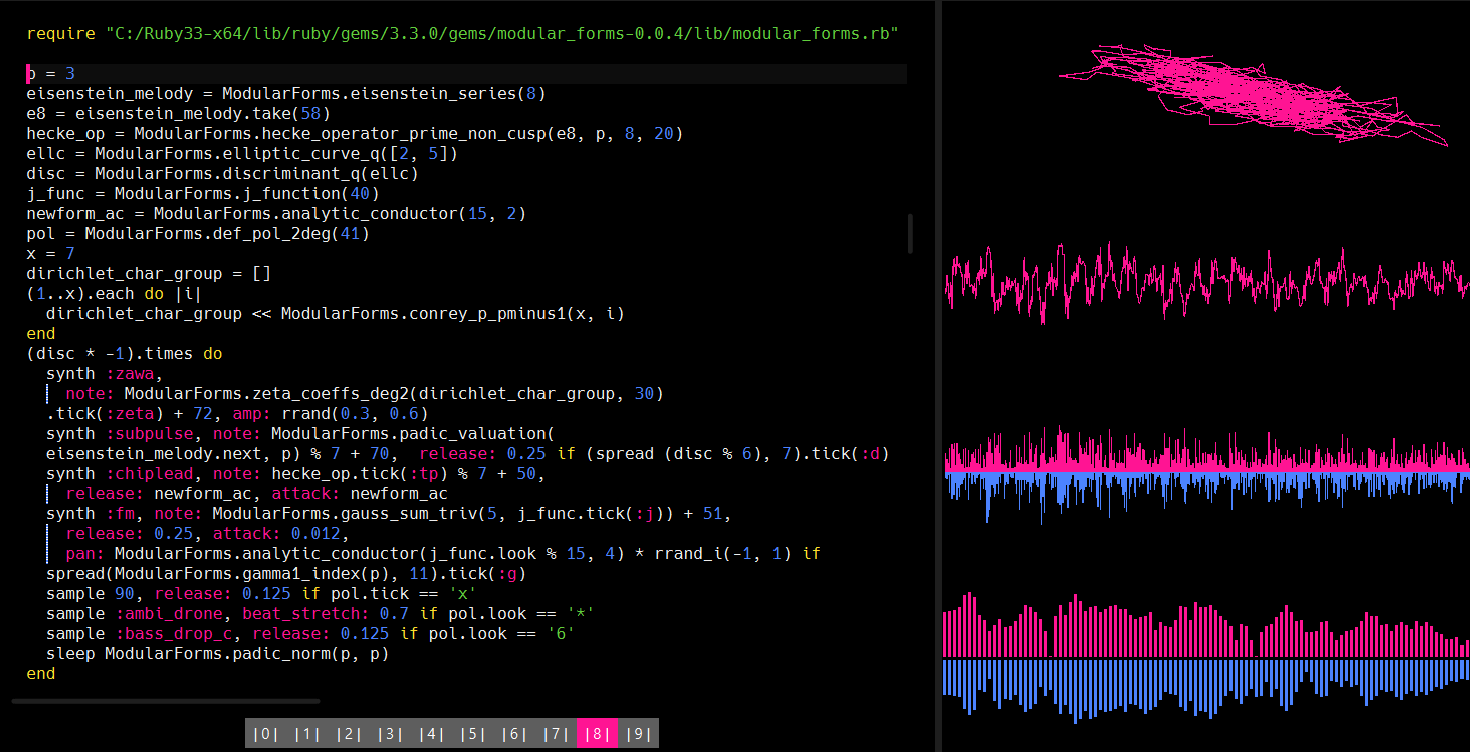Geometry determines arithmetic.
Precise knowledge of the behavior of an analytic function in the neighborhood of its singular points is a source of number-theoretic theorems.
I am Edgar Delgado Vega, a musician born in Lima who develops software at the intersection of mathematics, computation, and music.
My vision is to create abstractions through structural analogies that naturally lead to mathematical discovery from the musical perspective and vice versa. To this end, I design code libraries that enable tackling complex problems in creative ways.

modular_forms (Sonic Pi) As someone who enjoys questioning things, I prefer to reconstruct algorithms and music theory with sufficient mathematical rigor to unveil underlying patterns, which also involves thinking about asymmetries and non-commutativity. I find that this systematic approach is a genuine pathway to new concepts.
5D Hyperoctahedron Teaching Experience
I have teaching experience at both undergraduate and postgraduate levels, particularly in live coding and musicology with a technological focus. You can read feedback on my teaching practice here.
Interests
- Mathematical Music Theory
- Domain-specific languages (DSLs) for music
- Computer-assisted music composition and improvisation